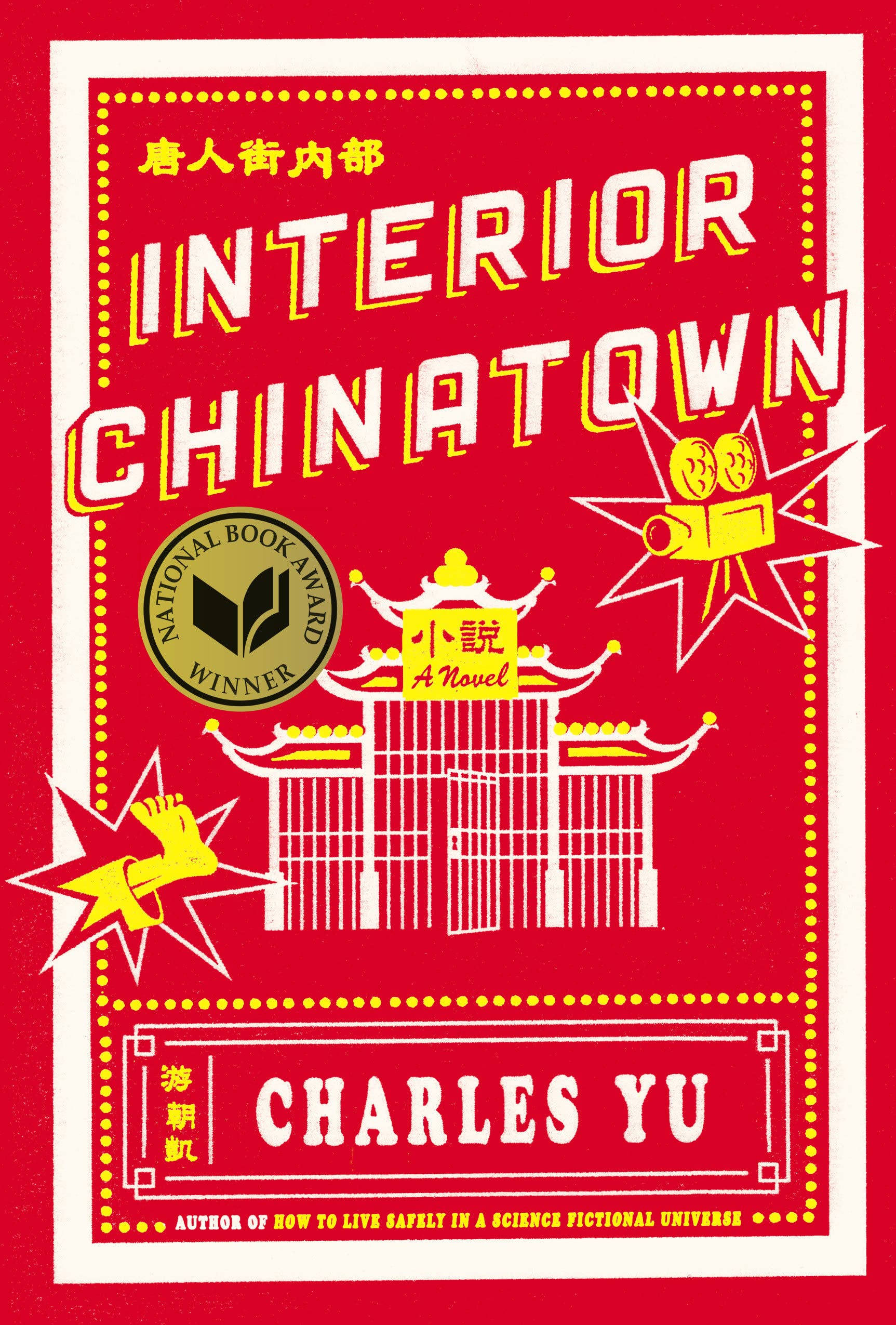Interior Chinatown
I absolutely see why this won the National Book Award, and deservedly so: the criticisms, so trenchant, wrapped in a postmodern fantasy, so clever, and delivered in a wry and outrageous voice. I loved — loved! — the first half of this book, and loved everything that it was trying to do and how it set out in doing so. The commitment to the form was superb.
The back half of the book is where the love affair faded into a more muted but still positive sentiment. I think the shift in perspective away from Willis and into other folks — that is, Wu shifting from talking about his life and how his life informs the greater world into fifteen-minute montages that are meant to humanize our ancillary characters but instead somehow cheapen them further — was a painful one, and everything in the final third felt B.A.-level hackneyed (rescued only by the framing device and voice, both of which remained pristine.) The stuff with Karen and Phoebe — I mean, that was some truly terrible writing, the best interpretation of which I can give is “well the joke is that they’re two-dimensional caricatures so whatever.”
That’s harsh, I know, but I really did think this book was special. It had such a specific clarity in its first half that it affords a significant amount of goodwill, and I’d recommend reading it (it’s so short! so expedient!) just to see what it’s going for, and then decide if you want to stick around for the cavalcade of monologues once Yu decided that it’s easier to turn subtext into text.
